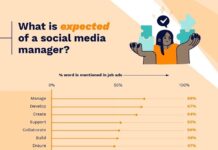According to a recent study by Pew Research Center, the 2012 presidential campaign marks the first time that more Americans mention the internet than newspapers as a main campaign news source (34% vs. 22%). However, despite the popularity of the internet as a source of campaign news, relatively few Americans are using social media to keep themselves updated about the campaign.
The study found that a quarter of Americans “regularly” learn something about the campaign from the internet, similar to the 24% in 2008. However, only 6% are using Facebook, 3% are using YouTube and 2% use Twitter to regularly learn about the campaign. More common sources of campaign information on the internet are: websites or apps of television, radio, newspaper or magazine news organizations (20%) and online-only sites and apps (12%).
The lower numbers of Americans relying on social media for campaign information is partially explained by the large numbers of Americans that don’t use social media at all. But even among Twitter users, just 17% say they regularly learn about the presidential election from Twitter. Nearly one-quarter (24%) say they sometimes learn about the campaign from Twitter, and most Twitter users say they hardly ever (19%) or never (40%) learn about the election on the micro-blogging site.
Similarly, only about one-in-ten (11%) people who use social networking sites, such as Facebook, Google+ and LinkedIn, say they regularly learn about the campaign from Facebook; another quarter say they sometimes do. Almost half of social networkers (46%) say they never learn about the election on Facebook, and 17% hardly ever learn about the campaign from Facebook.
According to the study, social networking definitely plays a larger role for younger Americans. 40% of social network users under age 50 say they regularly or sometimes learn about the campaign from Facebook. Among social network users who are 50 and older, just 24% say the same.
Pew’s News Interest Index survey, which took place over the course of January, also looked at the percentage of Americans in various age groups to see how closely they were following this year’s election. The study found a significant drop in the interest of young people following the campaign: only 1 in 5 people (20%) under age 30 have been following the campaign closely, compared with 31% four years ago. And while in 2008 there was only a small gap between the interest level of younger and older Americans, this year Americans ages 65 and older are twice as likely as those under 30 to “closely follow” the election (40% vs. 20%).
The lack of interest in the 2012 campaign among young people has carried over into their internet use. While 42% of those under 30 regularly learned about the candidates online in 2008, this year that number has dropped to 29%. Of that 29%, the top online sources of campaign information are CNN, Yahoo and Google. Just 8% of young Americans list Facebook as a top source of campaign information, and 4% list Twitter.
Could young Americans’ lack of interest be a significant factor in the low numbers of total Americans using Facebook and Twitter for campaign information?


